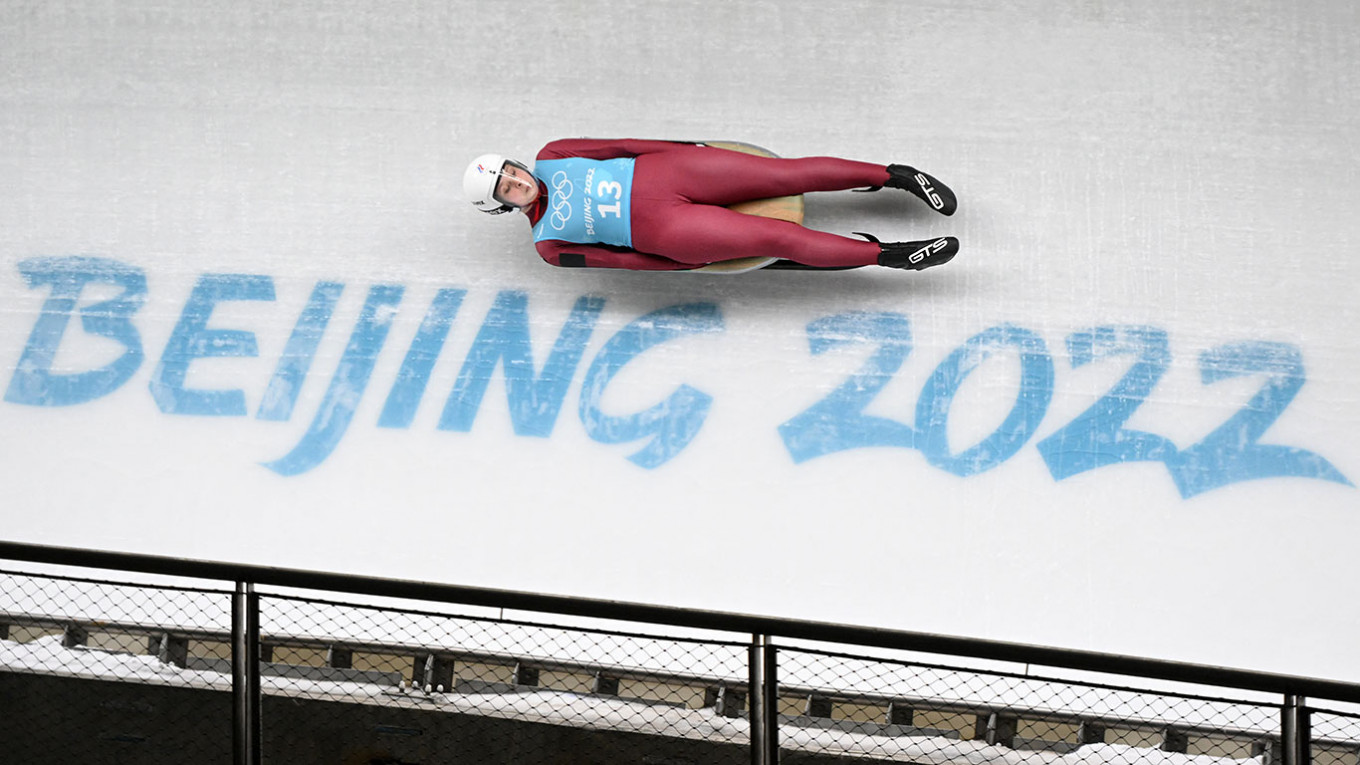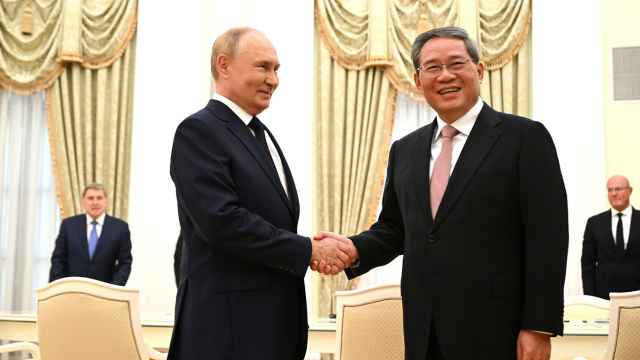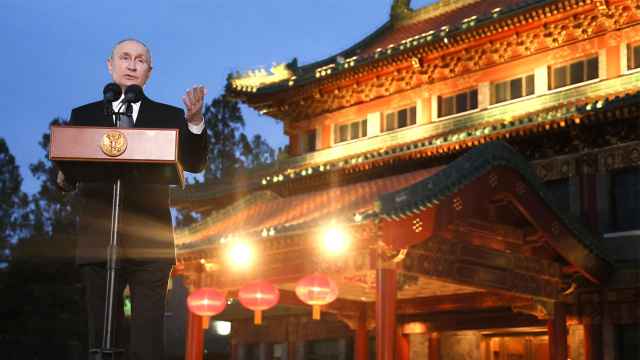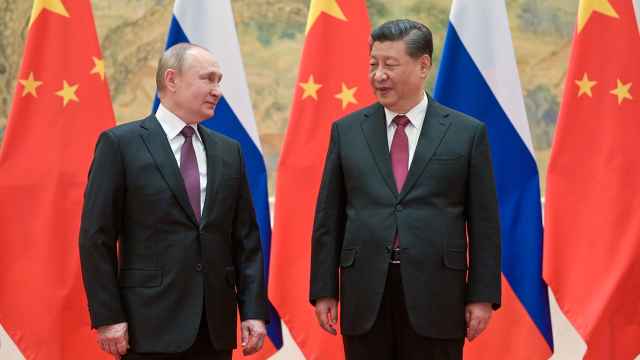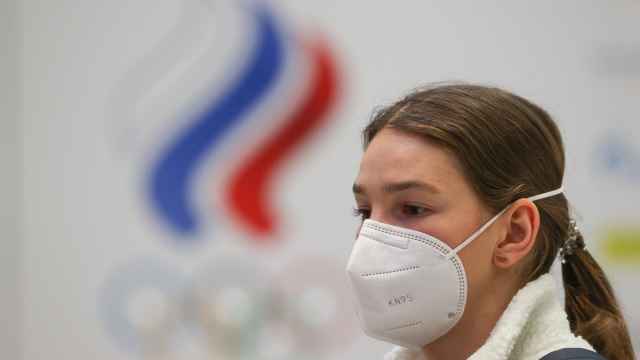As the Winter Olympics get underway in Beijing, Russia has assumed a pivotal role in an event billed as a display of China's might on the world stage.
With much of the international community shunning the Games on human rights grounds, Russian President Vladimir Putin’s presence at the opening ceremony is seen as a symbol of deepening Sino-Russian relations across a range of areas, including relations with the United States, cybersecurity and even Ukraine.
“President Putin’s visit to Beijing is aimed at signifying friendship between both countries and leaders,” said Daniil Bochkov, a China expert at the Russian International Affairs Council (RIAC), a Kremlin-linked think tank.
“Moscow and Beijing will be promoting their partnership as a counterbalance to the rift with the West,” he added.
With Russia and China enjoying increasingly warm relations, and sharing positions on key geopolitical questions and hostility to the U.S. — which has declared a diplomatic boycott of the Games citing China’s oppression of the Uighur people — the Olympics underscore a relationship that has become vital for both countries in recent years.
For Russia, whose athletes will again compete under the Russian Olympic Committee standard trialled at the Tokyo Summer Olympics, the games offer a chance for fresh sporting glory after years of doping scandals.
The International Olympic Committee’s 2019 move to strip Russia of its right to compete under its national flag for four years — later reduced on appeal to two — provoked outrage in the country.
The IOC accused Russia of systemic, state-sponsored doping of athletes, a charge Russia denied.
At the time, the Russian government claimed the scandal — which led to 43 Russian athletes being stripped of their medals — was a U.S. plot against Russia.
This time round, with Western countries including the U.S., the United Kingdom and Australia declaring a diplomatic boycott of the games, Russia has appeared keen to rally to China’s support.
In an interview on Thursday with Chinese state media, Vladimir Putin criticized what he called the “politicization” of the games, with his own presence at the opening ceremony an especially potent symbol, given that the Russian president has only rarely traveled abroad since the start of the pandemic.
Likewise for China’s President Xi Jinping, who has also shunned foreign travel since the beginning of the pandemic, Putin’s visit marks something of a watershed. Face-to-face talks with the Russian leader will be the Chinese president’s first such meeting in almost two years.
Twin purpose
For political analysts, Russia’s embrace of the Beijing games has a twin purpose: snubbing the U.S. while underlining a growing convergence between Beijing and Moscow.
Though China and Russia are not treaty allies, their relationship has deepened in recent years, with the two coming to share common positions on a range of key issues, and with both preoccupied with defending what they see as their sovereign rights from foreign criticism over human rights abuses.
“Russia is very important for China,” said Alexander Gabuev, a China expert at the Moscow Carnegie Center think tank.
“Beijing doesn’t want a return to confrontation on the very large northern border, and it’s useful for them to show the world that there are important countries that aren’t backing the diplomatic boycott.”
With Russia now locked in confrontation with the United States and its Nato allies over Ukraine, the need to cultivate China as an alternative source of political and military backing is greater than ever.
There has been some speculation that Russia will avoid attacking Ukraine during the Olympics for fear of offending the hosts.
It’s a theory that has gained traction for some given that China’s last Olympics, the 2008 Beijing summer games, were blighted by that year’s war between Russia and Georgia over South Ossetia.
However, this time around China appears to be backing Russia’s demand for security guarantees that Ukraine will never join NATO, at least according to the Kremlin.
On Wednesday, top Kremlin freign policy advisor Yury Ushakov said that China had pledged its support to Russia over its security concerns with the West, saying that the two sides had “common views” on the matter.
“China supports Russia’s demands for security guarantees,” Ushakov told reporters.
“A joint statement on international relations entering a new era has been prepared for the talks,” he added, referring to Putin’s pre-Olympic meeting with Xi in Beijing.
Even so, the Carnegie Center’s Gabuev stresses that the two sides are not in total alignment on the key question of Ukraine.
“I don’t think a war is in China’s interest,” he said. “But they probably can’t stop it either way.”
A Message from The Moscow Times:
Dear readers,
We are facing unprecedented challenges. Russia's Prosecutor General's Office has designated The Moscow Times as an "undesirable" organization, criminalizing our work and putting our staff at risk of prosecution. This follows our earlier unjust labeling as a "foreign agent."
These actions are direct attempts to silence independent journalism in Russia. The authorities claim our work "discredits the decisions of the Russian leadership." We see things differently: we strive to provide accurate, unbiased reporting on Russia.
We, the journalists of The Moscow Times, refuse to be silenced. But to continue our work, we need your help.
Your support, no matter how small, makes a world of difference. If you can, please support us monthly starting from just $2. It's quick to set up, and every contribution makes a significant impact.
By supporting The Moscow Times, you're defending open, independent journalism in the face of repression. Thank you for standing with us.
Remind me later.



